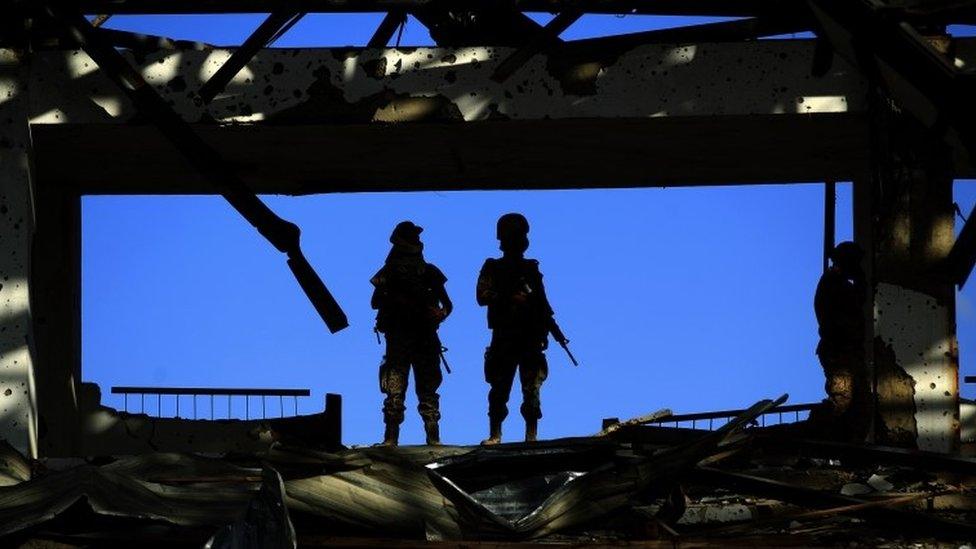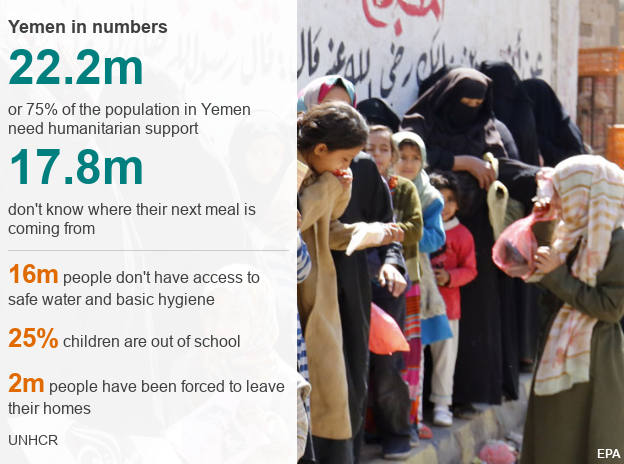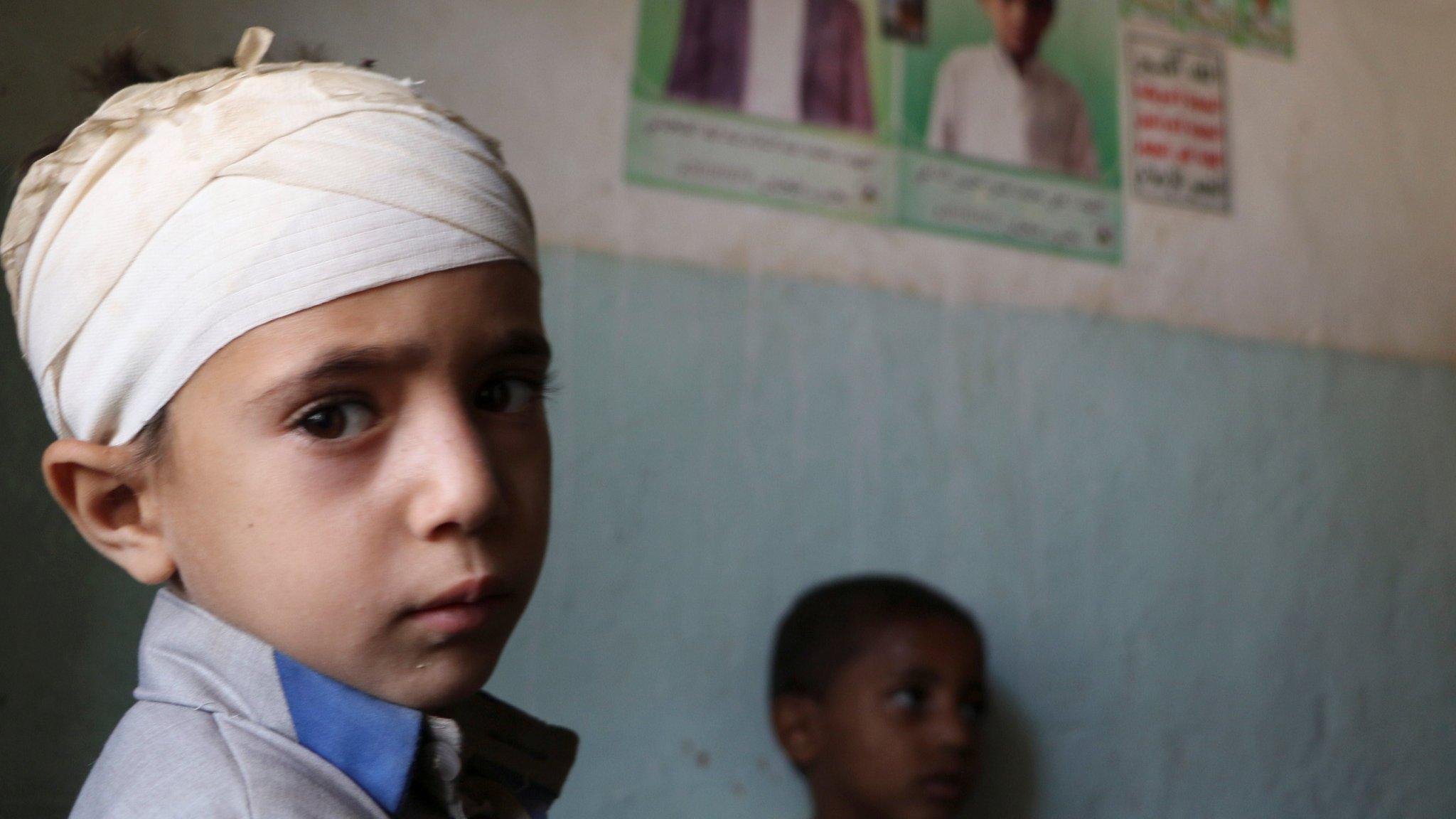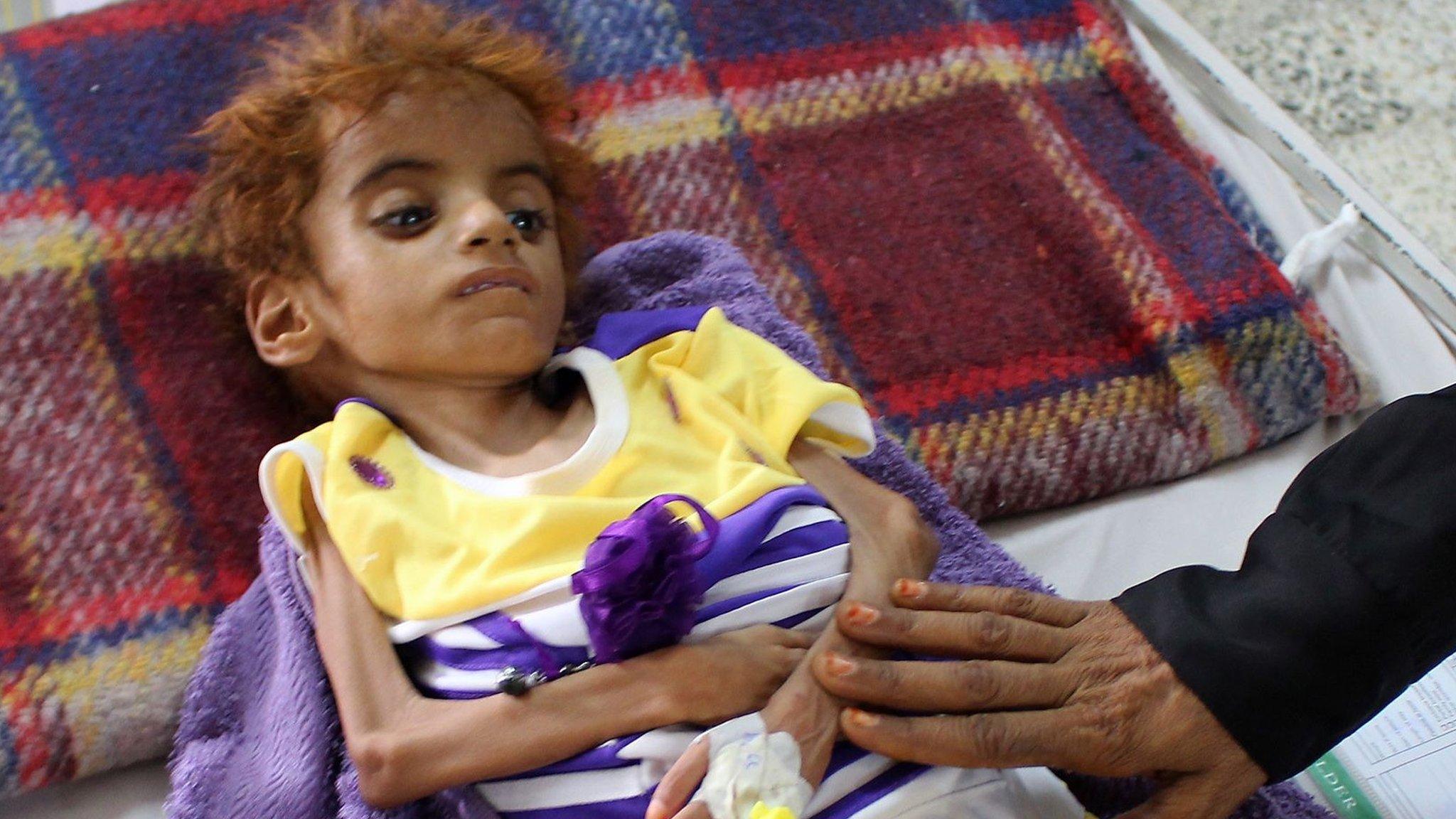Yemen war: Wounded Yemeni rebels evacuated in UN plane
- Published

Yemen has been gripped by conflict since early 2015 when Houthi rebels seized control
Fifty wounded Houthi rebels have been flown from Yemen to neighbouring Oman for treatment, paving the way for planned peace talks after nearly four years of civil war.
The medical evacuation on Monday, involving a UN plane, was approved by the Saudi-led military coalition.
UN-sponsored talks between the rebels and the Saudi-backed government are expected to start in the coming days.
The war has caused the world's worst humanitarian crisis in recent times.
In nearly four years of conflict in Yemen, thousands of people have been killed in fighting and millions have been pushed to the brink of starvation.
On Monday, the UN charter flight left Sanaa at about 18:00 local time (15:00 GMT), AFP news agency reports, citing sources.
The UN had appealed to the Saudis to allow the evacuation.
A coalition spokesman said overnight that the move had been requested by the UN special envoy for Yemen, Martin Griffiths, and had been agreed as a confidence-building measure ahead of discussions in Sweden.
The UN says Yemen is on the brink of the world's worst famine in 100 years if the war continues
The UN has been trying to revive talks between the government led by President Abdrabbuh Mansour Hadi and the Iranian-backed Houthis who control much of the north.
A previous round in Geneva collapsed in September when the Houthis failed to show up.
Why is there a war in Yemen?
Yemen has been devastated by a conflict that escalated in early 2015, when the Houthis seized control of much of the west of the country and forced President Hadi to flee abroad.
Alarmed by the rise of a group they saw as an Iranian proxy, the UAE, Saudi Arabia and seven other Arab states intervened in an attempt to restore the government.


There has been widespread concern for the plight of thousands of civilians trapped in the rebel-held port of Hudaydah.
At least 6,660 civilians have been killed and 10,560 injured in the fighting, according to the United Nations. Thousands more civilians have died from preventable causes, including malnutrition, disease and poor health.
The World Health Organization warned in October that about 10,000 new suspected cases of cholera were now being reported every week.
- Published7 November 2018

- Published31 October 2018

- Published31 October 2018
- Published24 October 2018
